Mariia Berlinska: This isn't even a stalemate now – we are on the point of losing the war
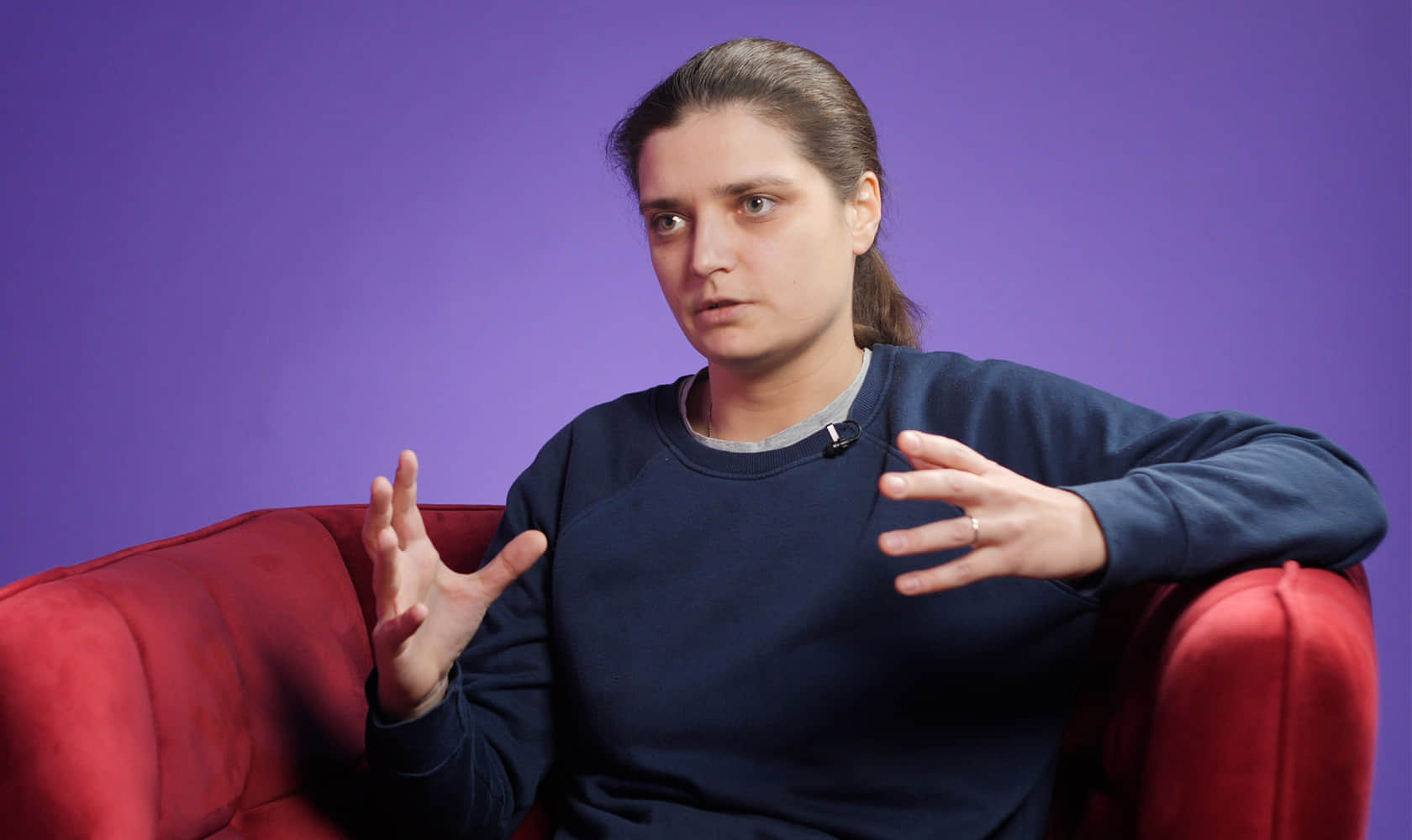
"If we had met the enemy, even in the autumn of 2021, with the industry developed to the extent that it is now, I can confidently state that we would have had significantly fewer losses, we would not have lost a lot of the territories that we are now struggling to regain control over, and we would have at least retained fire advantage over Crimea," says Mariia Berlinska.
Berlinska is a veteran of the Russian-Ukrainian war. She leads Victory Drones, a volunteer project run by the Dignitas charitable foundation, and is the director of the Aerial Reconnaissance Support Centre.
Berlinska believes that the only way the situation can now be saved is for the president to have personal control over the development of Ukrainian aerial reconnaissance. So she is proposing that a technology-focused Staff of the Supreme Commander-in-Chief be set up, with involvement from leading Ukrainian drone manufacturers.
What results could this deliver?
How should those who have been failing to develop Ukraine's defence industry for years now be held accountable for their mistakes?
Has the Ukrainian government begun to understand the importance of aerial reconnaissance?
Ukrainska Pravda spoke to Mariia Berlinska about all these issues and more.
Below is an abridged version of our conversation. The full interview is available in Ukrainian on our YouTube channel.
"Drones give you an opportunity to see in a matter of minutes what reconnaissance would take a couple of weeks to find out"
Do you remember the day when drones first came into your life?
I remember it well. It was the summer of 2014.
I’d been looking for an opportunity to volunteer for the front line. I’d called many battalions and was always rejected once people heard a woman's voice on the phone.
One battalion didn’t reject me, but asked whether I had ever worked with technology. I answered honestly that I hadn’t. They asked whether I knew anything about drones. Again, I said no. They asked whether I had any technical education.
Eventually this person asked, with their voice full of hopelessness, whether I was at least ready to learn. And I was. That was the beginning of my journey in this field.
I only had a few days of training before going to the front. The first drone that I worked on directly was in Luhansk Oblast. It was the "great-grandfather" of Mavic – the Phantom 2, which had a flight range of just a few hundred metres.
It was an interesting feeling, because it was an opportunity to see in a matter of minutes what reconnaissance would take a couple of weeks to find out.
One of my first drone flights was from Metalist. That was the first time I saw the occupied city of Luhansk. Our task was to reconnoitre the situation.
These were the early days of September 2014, and it was our last checkpoint before the line of contact near Vesela Hora. We didn’t know what lay beyond it. The commander who was with us warned us honestly that we might not come back.
Later, when years had gone by and we’d gained experience, we realised that we shouldn't have done that. Probably the only reason we weren’t shot then and there was because the enemy didn’t believe anyone could be so arrogant.
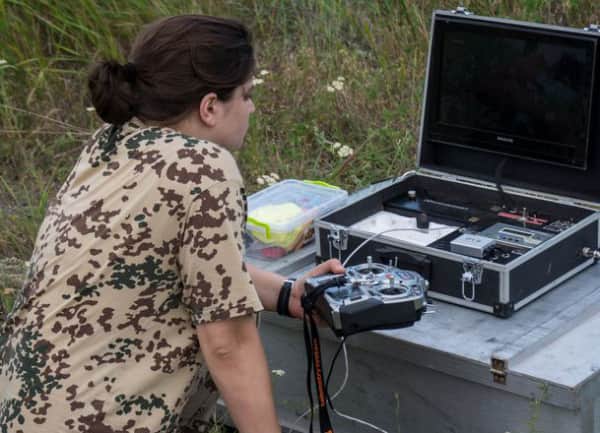
How easy was it for you to join a field that requires a lot of technical knowledge?
We are not born with any knowledge. We are always learning. If you have the motivation and desire to learn, you will succeed.
Now we are teaching servicemen and women to fly FPV (first-person view) drones. And it’s difficult, because FPV in unmanned aerial vehicles is considered a kind of aerobatics. The training takes at least a few weeks, and if there's an engineering component, it takes a good month.
Can anyone be taught to fly a drone?
If you really want to, then practically anyone can do it. We’ve had cases of people in their 60s, with concussion, who were very persistent and spent a lot of time on it, spending whole nights flying on simulators.
If you had to name the most talented students that you’ve personally taught aerial reconnaissance, who would they be?
Of the people I’ve trained directly, probably Masi Nayyem [a Ukrainian lawyer, human rights activist, Armed Forces soldier and brother of the politician Mustafa Nayyem]. That was in Avdiivka in 2016. It took me just a few hours to explain the basic rules of operating a multirotor to him, and he picked it up very quickly.
Later, they [Nayyem’s unit – ed.] held the industrial zone near Avdiivka largely because they were able to send a drone up above them and see what was there (the distances were symbolic – 50, 70 or 100 metres to the enemy). This enabled them to control the perimeter.
Masi is really talented. Overall, I think we’re all lucky to have him.
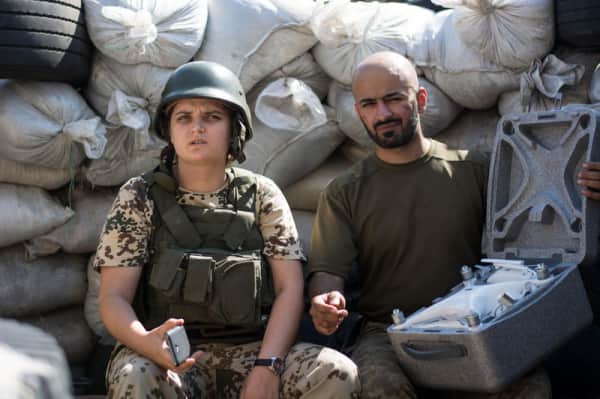
"Now we are paying in people’s lives for mistakes that have been made over many years"
Have there been any battles during the full-scale war so far in which drones played a decisive role?
I don’t think there have been any significant battles during the full-scale invasion where drones haven’t been involved, because if you don't have drones, you are fighting blind: the enemy can see you, but you can't see them. In addition, a drone gives you an opportunity to destroy enemy equipment cheaply, accurately and on a large scale.
Therefore, the side with the best technology will always have the advantage. It’s an absolute must-have in modern warfare. No battle or operation is possible without it now.
You often reiterate that the state isn’t paying enough attention to aerial reconnaissance nowadays.
It's now 2023. But you were saying basically the same thing back in 2014, and I quote: "The state still has no understanding that aerial reconnaissance is a strategic and priority area."
The government has changed since then, and the intensity of the war has increased. Has there been no progress in this area at all?
There has been some progress – it’s just not relevant to the demands of the times.
Now we are paying in people’s lives for mistakes that have been made over many years. It's just that some people make the mistakes, and other people pay for them with their heroism, their lives and their bodies.
It’s morally wrong that young and old alike are now going through this hell because someone was once eager for power but had no understanding of what a country's development is, or what national security is.
These are not the mistakes of young men and women who are now 20 years old. These are mistakes made by grown men who are now 55-60 and who used to rule the country. These people have names.
Why should some people die, while others can retire on a state pension and pretend to be great strategists? They should be held accountable. Why not form a brigade out of these people? Why are they untouchable and not called up for any fighting under any circumstances? These people should go to the front and share the same danger.
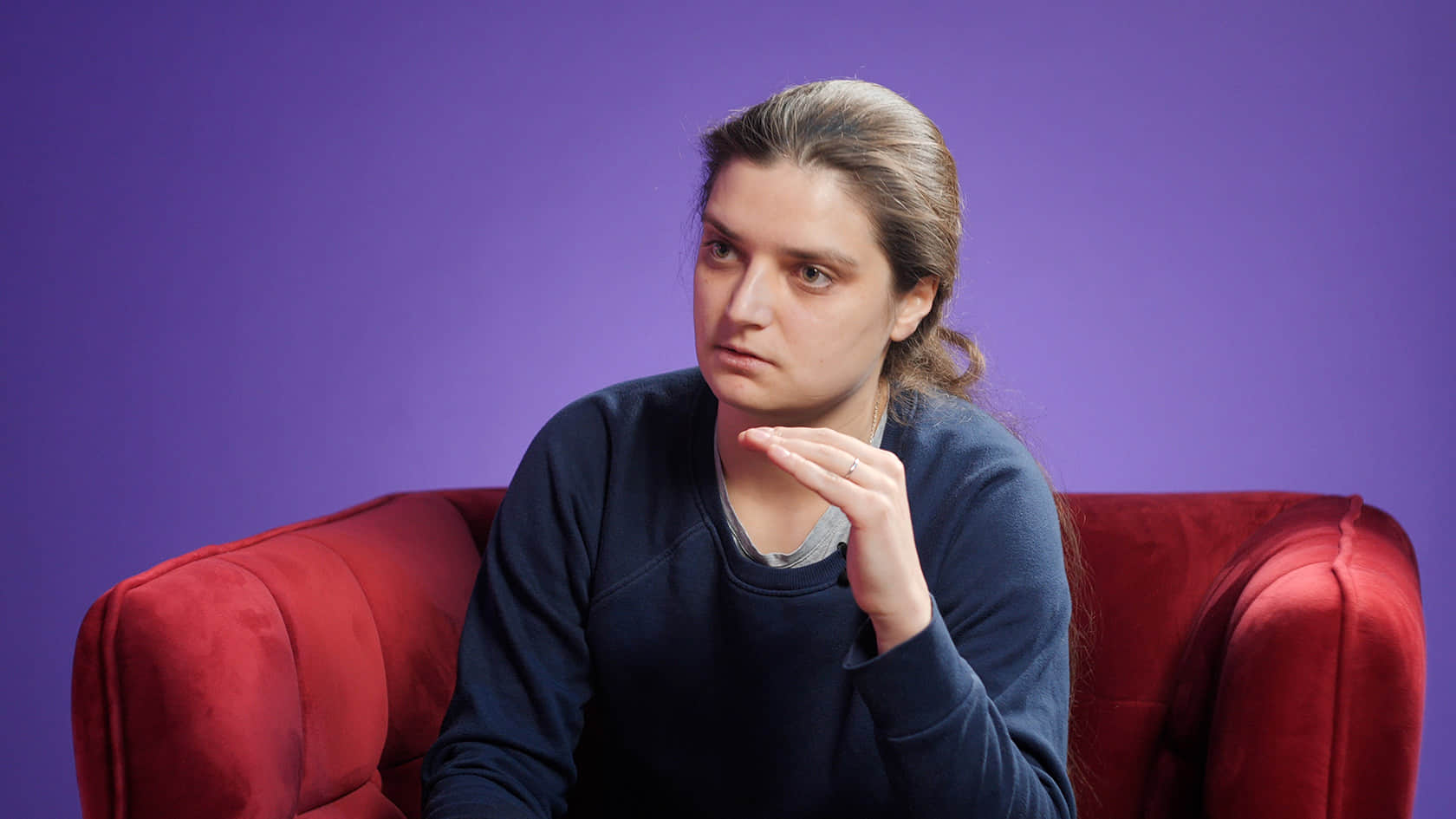
Most of them are adult men who could make a good team to hold Avdiivka. Let them experience for themselves what it’s like to fight without drones, what it’s like to have hundreds of Russian FPVs flying at you and you have nothing to defend yourself with. And why is that? Because these people didn't give a thought to it two, three, five, ten years ago.
Back in the autumn of 2021, when information about a full-scale invasion was everywhere, the Ministry of Defence failed to make arrangements with any manufacturers. And when the invasion began, they all went running to the manufacturers, ready to pay any money.
Now the Ministry of Defence is starting to sign contracts with more manufacturers. But it’s nowhere near enough for a war of this scale. The Ministry of Digital Transformation has tried to close the gap. And whatever anyone says, I am certain that if Fedorov [Digital Transformation Minister Mykhailo Fedorov] and his team hadn’t taken this on, our losses would have been even more significant. Of course mistakes have been made, of course not everything has gone smoothly, but they were coming into a field where there was really no one and nothing at the time. What they’ve done deserves recognition and gratitude from society.
Now Arsen Zhumadilov, the head of the newly created State Logistics Operator, wants his agency to be in charge of the procurement of non-combat drones for the Ukrainian Armed Forces. Is this a good idea?
Why not? If it makes the [procurement] process quick.
Every day is costing us. Obviously, during a war, neither side says how many people they are losing. And believe me, there may be days when the number of people killed and wounded can be up to a thousand.
Time is not on our side right now. The sooner the tech stuff is purchased, and the more the government invests in this area and prioritises it, the more people will stay alive. Where there are no drones, people are becoming disposable items.
I’d even go so far as to say that this isn’t even a stalemate on the chessboard now: we’re on the point of losing the war. I believe that our people are mature enough to be told the truth. And this truth needs to come from the Supreme Commander-in-Chief.
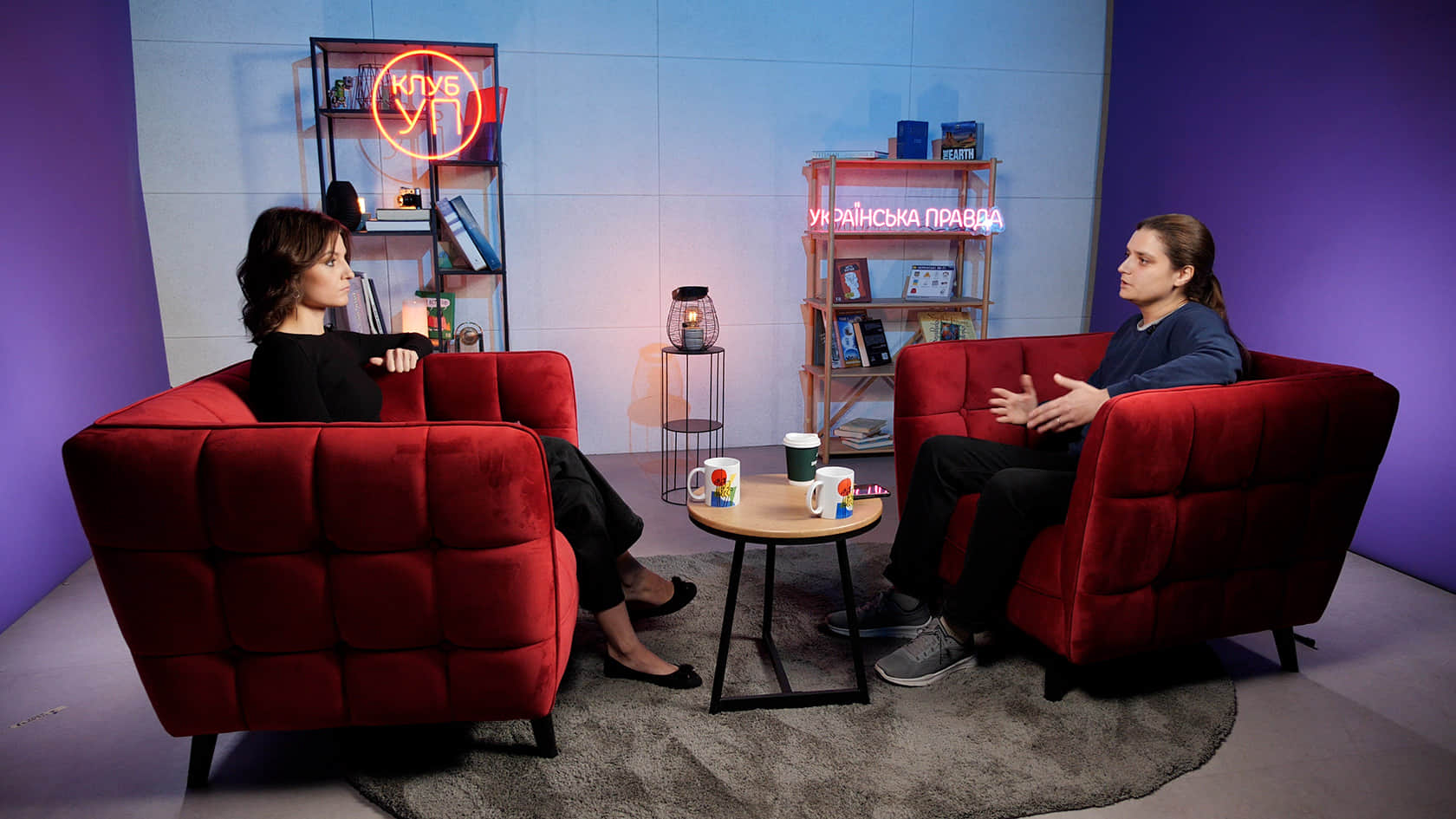
It’s not just Russia's defence industry working against us – it’s also the defence industries of Iran, China, North Korea, Belarus. There is an axis of evil fighting us. And the assistance from our Western partners will decrease. So now I see no other way out than for the president to take personal control of the development of military technology in this country.
There’s the Staff of the Supreme Commander-in-Chief, where he brings the military and political leadership together. And there should be an Engineering Staff like this, where engineers from the country's leading companies will report to him every few weeks on their results and on key areas.
I’ve spoken to most of the country's technology manufacturers, and everyone tells me: "Mariia, if we were told from the top, 'Give us the best engineers for the national team,’ not one of us would say no." They are ready to work if they have a clear understanding of what’s needed for the state and for the front line. No one will ask for any money for this, because everyone understands what it’s for.
We are ready to help put them in touch with manufacturers, put these teams together and set specific technical tasks, and only by doing that will we be able to talk about any kind of parity.
We lost so much time so incompetently that now the Russians are way ahead of us. The more they automate their systems, the more they develop 'drone swarms' and automatic optical navigation (when the drone itself recognises the target and makes the decision to hit it), when there are thousands of such drones flying, we will be forced to retreat dozens of kilometres in a matter of weeks.
"Unless we save people with technology, we’ll have to sit down at the negotiating table, and that will be a defeat"
How can Russia be developing drones and increasing their number on the battlefield while it’s subject to sanctions restrictions?
Why shouldn’t it be? Russia is now ordering hundreds of thousands of FPV drones in China and localising production in Russia itself. They have access to Western technology through third countries (Kazakhstan or Türkiye). When we take their drones apart, we see Canadian, French and American circuit boards next to Chinese and South Korean ones.
Ukrainians also try to source drone parts in China. But they’re not always successful, because sometimes the Chinese refuse to fulfil an order when they find out that it’s for Ukraine. How common are such situations?
There are examples of that happening, of course. That's why our manufacturers often have to figure out how to get components to, say, Zhmerynka via Rio de Janeiro.
But manufacturers shouldn’t have to think about how to get technology into the country. Manufacturers shouldn’t be fiddling around with crypto wallets or constantly arguing with customs.
The state should import components, and we should go and choose them. But the state doesn’t do that. Moreover, the state still believes in the market. And I believe in the market too, in peacetime. But I don't believe in the market in wartime. This is not a normal time.
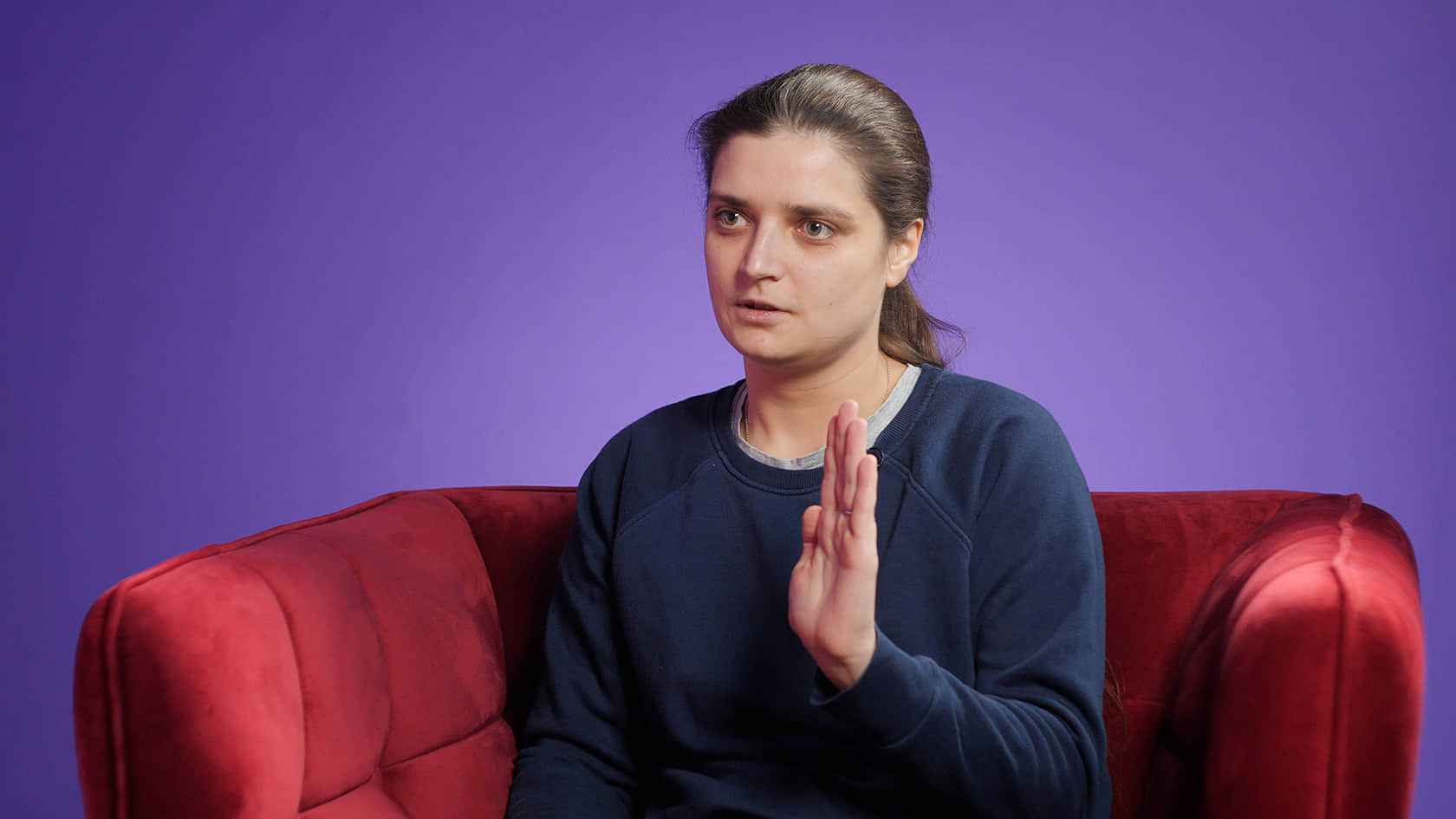
Russia is throwing billions at the private sector, throwing money at all the technology manufacturers in the country. And at the same time, they have regular contracts with Chinese factories, they regularly buy components from other countries, and they regularly take the best engineers.
We can’t afford to work only with the market now. We’ve reached the point where we are running out of people. And if we run out of people, if we don't save them with technology, we’ll have to sit down at the negotiating table sooner or later. And that will be a defeat for us.
Isn't the role of FPV drones overrated in this war? Because we hear from time to time that launching an FPV drone is sometimes a bit of a lottery, and that it doesn’t always hit targets successfully.
Artillery doesn't always hit precisely either. And it's very difficult, almost impossible, to hit a target with artillery accurately if it's moving! FPV drones are very good at striking moving targets.
Of course, not every FPV drone works like it should. And they’ll become less effective as the Russians take countermeasures against them.
Apart from FPVs, what types of drones and unmanned aerial vehicles does the Ukrainian army need now? And does that depend on the time of year – do some drones work better in winter and others in summer?
Whether it’s a Mavic, an FPV drone, or an ordinary AgroDrone that we turned into a bomber, these are all devices where the propellers get iced up. They’re all devices that are difficult to work with in winter, with batteries that run out quickly.
It’s really difficult to work in winter in general. My winters in Donbas are among the most horrible memories of my life: you come out of the dugout and your hands go numb right away. You’re lucky if you work from a car. But often you can't work from a car, and you can't work with gloves on.
"There are no men and women in the army. There are professionals of different sexes"
You are a woman who once went to war. Now we see many other similar examples. Have you noticed any changes in attitudes towards women within the Ukrainian army since then?
It's better now than it was in 2014. But unfortunately, there are still a number of prejudices, ranging from "You can't serve because you're a girl and you belong in the kitchen", to sexual harassment sometimes. This is wrong.
There are no men and women in the army. There are professionals of different sexes. As one of my colleagues jokes: "You don't fly a drone with your genitals." What matters here is what kind of expert you are, how you think, how you analyse the situation, the fact that you wouldn't abandon your people at a crucial moment and wouldn't let them down.
We have to give women the opportunity to serve in the same way and consign all these prejudices to the dustbin of history.
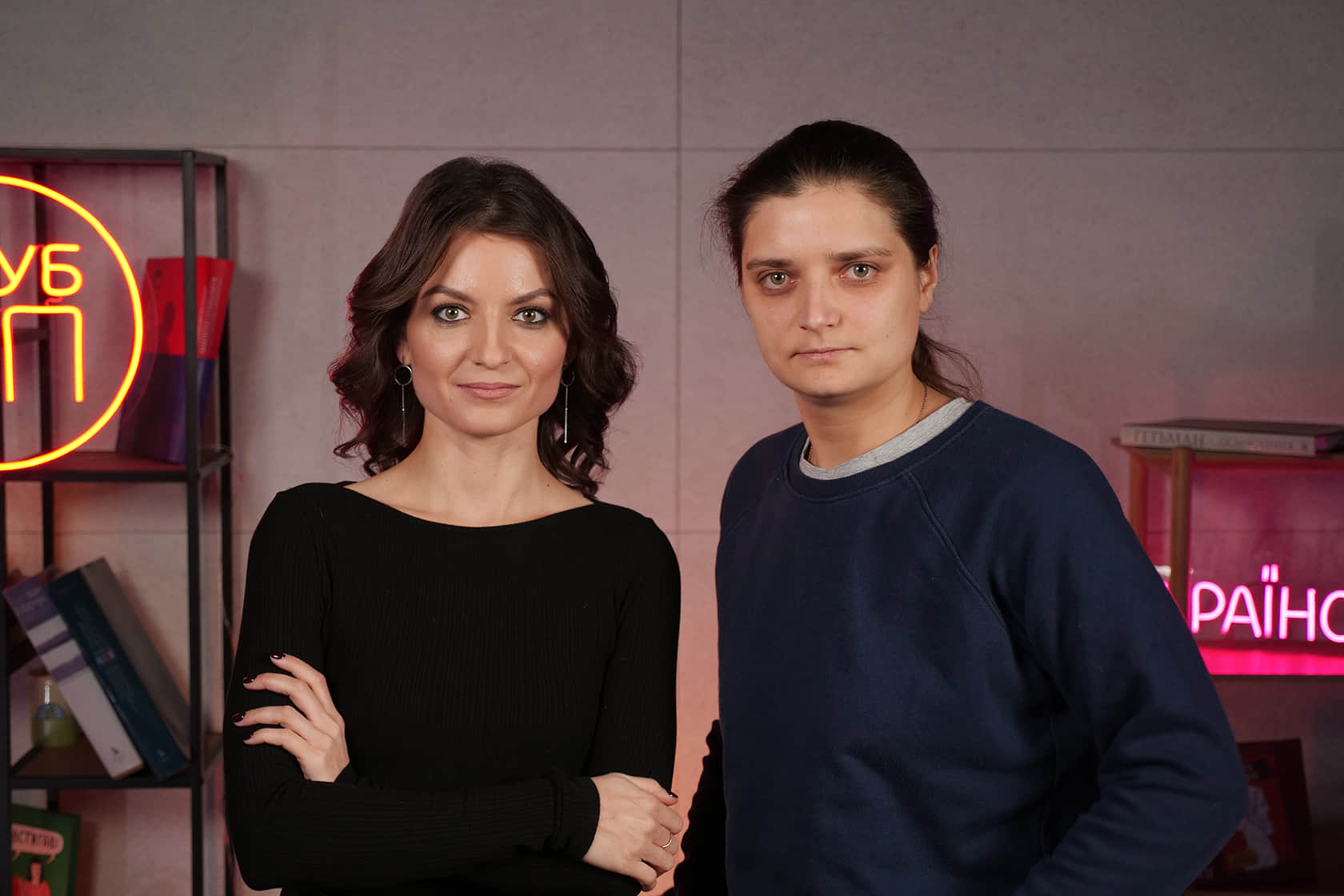
Are there any specialisms in the army that women cannot master?
I don't think so. It depends on your physical health.
Can a woman be an assault trooper?
Of course. I have a sister-in-arms, Andriana Susak – she’s an assault trooper.
So I don't see any obstacles or any reasons why women shouldn't fight. After all, it was mostly guys and men who reduced our defence industry to the state it’s in today.
Some people say mandatory mobilisation should apply to women as well as men. Do you agree?
What I will say is that if we continue to fight with the same methods, support and approaches as we’re doing now, then sooner or later we’ll either have to sit down at the negotiating table or mobilise women.
"It’s completely normal to be afraid. And it's okay to admit that you are scared"
When you decided to join the army, you admitted that you were scared, but later you were able to overcome this feeling.
What advice would you give to other people who are willing to go and fight, but are very scared?
I don’t think it’s possible to overcome fear completely. It’s a basic instinct. But I’ve come to the conclusion that in a war, either you control your fear or fear controls you.
I get scared even now. And the fact that you have previous experience doesn’t mean you won’t get scared later. It’s completely normal to be afraid. And it's okay to admit that you’re scared. Everyone is scared.
What helps me? A certain fatalism: if it's my destiny, I can't escape it. Also, I’m going to die one day anyway. I can't influence the time of my death; it's already set somewhere. But I can influence it by preparing for it.
And that's why I believe that every day should be lived as if it were your last, as your conscience dictates. When you’ve achieved something in this world and you realise that you’ve honestly done all you could, it won’t be so scary.
In mid-August, the Russians fired a missile on Chernihiv when a private event focused on drones was taking place there. You got the blame for this tragedy on social media.
How have you reflected on this story? What conclusions did you draw? And how did you feel when this public outrage was being poured out on you?
Firstly, the Russians were heavily involved with their psyops to split society (the Security Service of Ukraine told us that right away).
Secondly, several well-known Ukrainian bloggers were involved. In particular, Oleksii Arestovych and Yevhen Karas. I have long-standing personal, so to speak, scores to settle with both of them.
I clashed with Arestovych in the comments back in 2016 or 2017 because he didn’t recognise the service of my sisters-in-arms. And just before the events in Chernihiv, I’d written a post saying that I think Oleksii is, let's put it this way, an incompetent person who creates a lot of harmful white noise in public discourse. So he decided to get back at me.
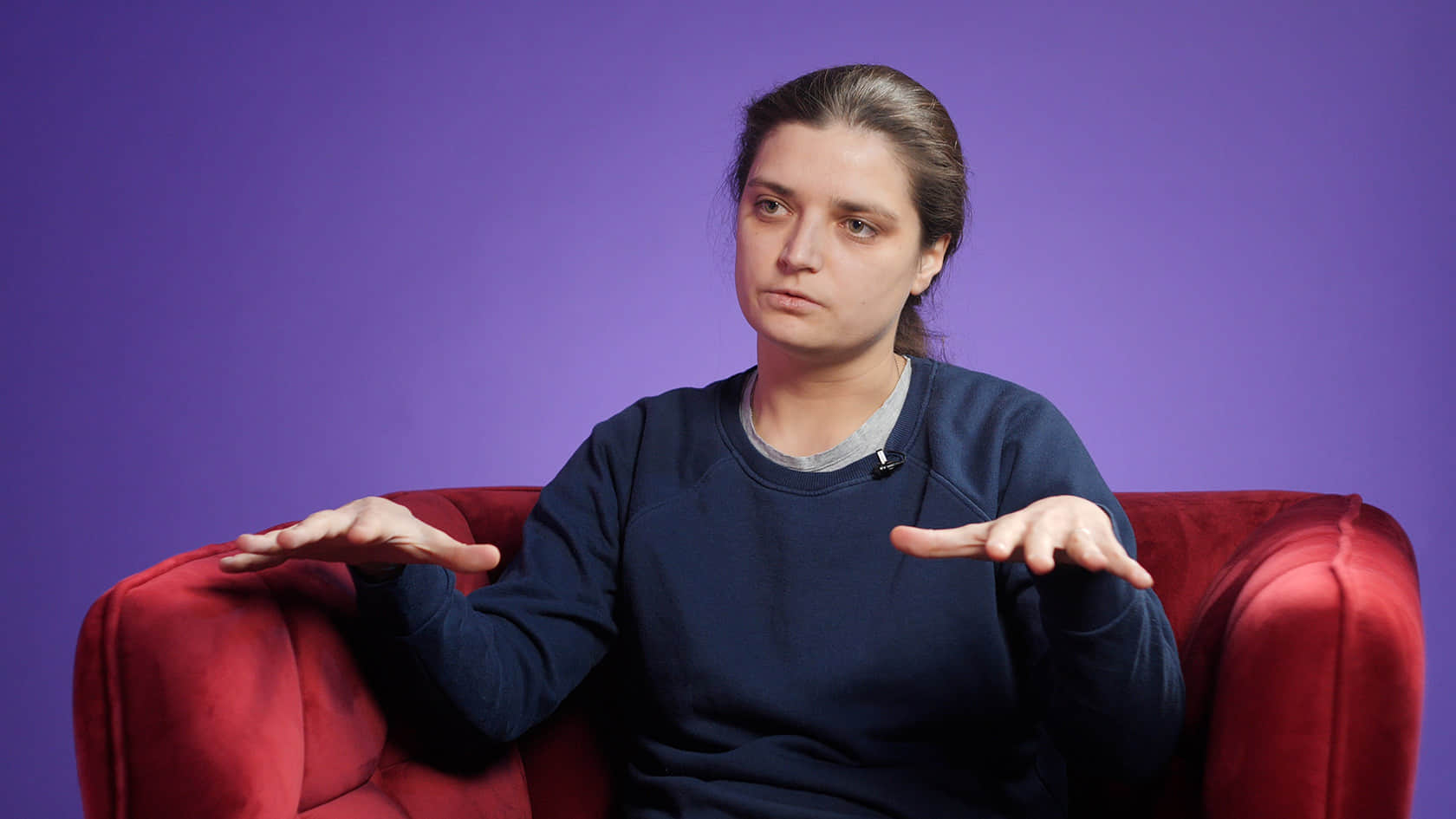
It was the same with Yevhen Karas. Once, Ihor Lutsenko [a journalist and former MP] asked me to take Karas with me to the front as a crew member. We were on our way there, and Karas behaved so appallingly that I had to stop the car in the middle of a field and say goodbye to him. Apparently he was offended, and he used this opportunity to get back at me too.
People with critical thinking skills fully supported me, and of course, I’m very grateful for that. I didn't expect such a wave of support on social media from journalists, volunteers, and people I don't know at all.
I had two ways out of the situation: I could either come out and start naming those involved – the real organisers of the process, those who chose the place and time (and that would have made the enemy very happy) – or I could give this information, everything I knew, to the Security Service of Ukraine. And believe me, I would not be sitting here if I had been involved in any stage of this closed event.
Does it bother you when people call you "the biggest pessimist of this war"?
It’s fine if I’m the biggest pessimist of the war, as long as we win it. I want to be wrong about every prediction I make. And I keep on repeating this.
If someone comes up to me in a year’s time and says one of my predictions didn’t come true, I’ll be happy. Because I don't care about being right or going round wearing a T-shirt that says "I was right".
I want to put us in touch with reality. It's not about pessimism, it's about tough but honest realism.
Sofiia Sereda
Translation: Myroslava Zavadska
Editing: Teresa Pearce